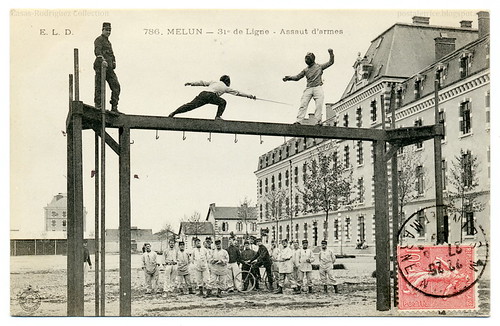I received an auto reply from my friend Alistair today apologizing for his slow email replies as he’s on a “media diet”. He referenced this My Paleo Diet post. I also read how Abid gave up on wheat in his diet. I don’t often write about my personal life and related choices but there are two threads that confuse people the most. Jim’s post interested me as he mashed them together.
1. Smart Phone?
If you know me personally you’ll know that I haven’t owned a smart phone for over a year now. I make myself highly available by phone(519.489.0116). Email, twitter etc are tools I only use a few times throughout the day. When I receive what appears to have been an urgent email, I respond explaining that I don’t check email often and to please phone me if you need an urgent response. The result is I don’t get a lot of urgent emails anymore. Oh, and I don’t get very many phone calls either. My hunch is that this approach forces people to reflect on the matter at hand, which usually results in recognizing it may not be as urgent as they first thought. If it is then they phone me, we talk and deal with it immediately.
I’ve had a John’s Phone for that time. It was an experiment but we’re well over a year into it so I think we’re officially past the experiment stage. When I ditched my smart phone, I picked up a Kindle and literally last night I received my new Kindle Touch 3G. When I leave my house, I bring three things without fail. Those are my John’s Phone, kindle, and a field notes book and pen. Oh, and I haven’t received or sent a text message in over a year.
Not owning a smart phone confuses most people. The responses are typically variations on….
“How can you not own a smart phone when you work in computers?”
“I would love to not own a smart phone but there’s no way I could do it.”
“I wouldn’t ever be able to leave the office if I didn’t have my smart phone.”
They explain to me how important their smart phone is to their survival. They then explain how they have the perfect system which prevents them from turning into all those other people who are addicted to their smart phones. I listen, having not once suggested that they should ditch their smart phone. I’m not asking anyone to make the same choices I’ve made. It’s always interesting how people feel the need to defend their choices to people who’ve made ones different than theirs.
Some people get around to asking me about what it’s like not to have a smart phone. My answer is simple in that it slowly gave me back the ability to daydream. I’ve learned over time that my ability to daydream is core to my personal and business success. I have more time to stare at the wall. When I wait in line at the bank, I look at people’s faces and watch the tellers. When I’m at my son’s hockey game and there’s a break in the action, I watch the refs and how they interact with the coaches. I don’t solve big problems by working on them directly. They’re solved by my subconscious, often while “wasting my time” daydreaming. Owning a smart phone slowly reduced my ability to do this.
Part of the inspiration for this experiment was to be more present with the people physically around me. If you’ve made the effort to join me for a coffee or a pint then I want to be as present for that as possible, not wasting your time while I interact with my lazy friend sitting on his couch at home watching the hockey game instead of joining us.
The combination of no smart phone and always having a Kindle means I read a ton now. I now read books again. When I have 10 minutes to spare in a waiting room, I jump into my current book. I believe I’ve read more books in the past year than the previous 5 years combined. I love paper-based books and had a lot of reservations about ereaders in general. I eventually realized I’m a fan of reading and writing not the Gutenberg press.
Smart phones can do incredible things and I certainly miss some of those. For me personally, the negative impact far outweighs any benefits they offered me.
2. No More Grains
July of last year, while at the cottage, I read The Primal Blueprint (on my kindle of course). Mark’s book inspired me to experiment with removing grains from my diet altogether and moving to a high fat diet. Literally within days I noticed a huge difference in my daily energy levels. It was as if a mental fog had been lifted. My daily energy levels became far more stable. I no longer had those moments where I felt like I was melting physically. I really do feel better than I ever have in my life.
I also lost weight, which I wasn’t hoping for. In fact, heading into hockey season last fall I was hoping to put some on. That means I consume a lot more food daily than I used to and it’s a high fat diet. I don’t know all the science but I can tell you from experience that grains, not fat, cause me personally to put fat on my body.
Something else I’ve been watching is my overall health. Since I stopped eating grains last July, I have had one cold which I have as I type this. It’s a small cold and I’ve only had it a few days and my guess is it’ll be gone in a day or two. That’s almost a full year without getting sick once, which is unusual based on my history.
As with the smart phone, I still consider no grains to be an experiment. At this point I have no reason to turn back when you consider my increased, and more stable, energy levels along with my overall good health. Not being wiped out a few times a year by colds and flus almost justifies it alone. Oh, and if it’s the placebo effect, I could care less because it’s working!
PS, I’m not suggesting you stop eating grains or ditch your smart phone. I just figured I’d share some of my experiences.
 We, at ThreeFortyNine, started a referral program recently with our members that I wanted to open to the public.
We, at ThreeFortyNine, started a referral program recently with our members that I wanted to open to the public.
 Travelling to and from conferences is a massive waste of time. You attend a great conference, hear awesome speakers, and then travel back to your home city, which is filled with people who didn’t share that experience. There’s no one to continue the conversation with, no one to hook up with next week for a coffee and keep the flow going.
Travelling to and from conferences is a massive waste of time. You attend a great conference, hear awesome speakers, and then travel back to your home city, which is filled with people who didn’t share that experience. There’s no one to continue the conversation with, no one to hook up with next week for a coffee and keep the flow going.






